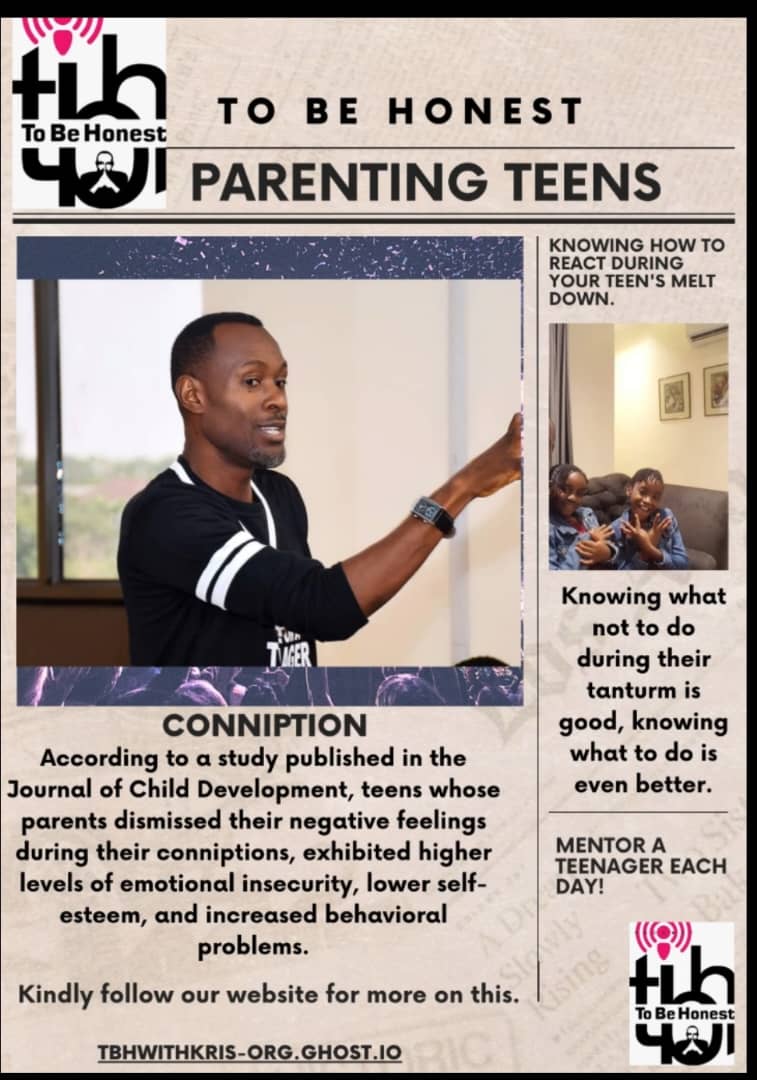WHAT NOT TO DO DURING THEIR CONNIPTIONS
I listened to the inspirational interview by David Folaranmi on how he battled with drug addiction for seven years and one major thing that struck me was when he said that during his first cry for help which was a conversation between him and his parents.

I listened to the inspirational interview by David Folaranmi on how he battled with drug addiction for seven years and one major thing that struck me was when he said that during his first cry for help which was a conversation between him and his parents, they seemed not to get it, they played down on his feelings and what he was saying. And so, he missed that window of opportunity to get help, thank God that was not the end of his story. He did also mention that he won’t blame his parents for this as they also were working based on what they knew.
This makes it very important that as parents we need to make a constant effort to update on our parenting knowledge just as we do with our professional careers, the world is changing, and we can’t afford to be left behind.
So, what happens when teenagers who are going through their own natural season of identity crisis now start throwing tantrums? How should parents, who also have their own issue of balancing their role as caregiver, deal with it?
Teens who are experiencing puberty for the first time along with all the other challenges that come with it like mood swings, academics, pressure to perform, taking care of their siblings, career choices, teen crush, spirituality and many more, may find themselves more frequently throwing conniptions at their parents as a genuine cry for help.
As parents, we must try and ensure that during these key moments, we communicate with our teens to connect more with them, than to disconnect from them.

Three things not to do during these moments would be.
- Try not to scream: maintaining a calm demeanour all through their conniptions as parents show maturity and a higher level of emotional intelligence which is something we must bring into our communication with teens if we want to remain connected to them. Take time to press pause, rephrase their words back to them, just to be double sure of their thoughts so no details are missed and be present in the conversation (drop your phone).
- Try not to ignore their feelings: as pointed out during David Folaranmi’s interview, during his first cry for help, his parents did not believe him and somehow ignored his feelings. This is somehow like the Dahmer story, where when Jeffry was trying to tell his dad that he had murdered someone, his dad just ignored him and laughed it off, that gave Jeffry Dahmer the window to just carry on with what he was doing, feeling less troubled about it.
- Try not to give in to their obviously faulty behaviour: At the end of the conversation, parents must be honest and objective with the facts, ensuring that their teens when calmer see the true picture of things and come up with a plan to adjust their faulty behaviours. This not going to be as easy as writing this newsletter, but it is something that need to happen if we are to grow up and grow out of the negative behaviours, preventing a re-occurrence.
In our next newsletter, we shall look at a few suggestions on what parents should do during their teen’s tantrums, as knowing what not to do during our teens conniptions and moment of vulnerability is good, knowing what to do is much better.
@chris Aluta(Teen Mentor)

